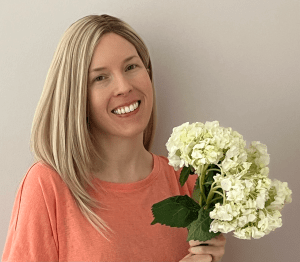
Please see Part 2 of the series here.
All humans – not just entrepreneurs – are more likely to thrive when they develop mindfulness skill, mostly because the fundamental relationship you have with your mind shifts when you stop and pay attention to its contents. But peering into your mind can, at first, feel a bit frustrating. Why? Because you discover SO MANY reoccurring patterns or habits of thought, feeling or reacting that just seem not useful, not generative and irritatingly repetitive. That said, first, sensing these patterns means that you have found some firm footing in your mindfulness practice – so congratulations! And second, once you see these patterns, you can also see how to use mindfulness to remedy them. In other words, you can’t solve a problem without identifying a source! To outline these frustrating habits of the mind and their antidote, this week I recount my personal mindfulness journey next.
Negative Habits of the Mind
For far too long, I found myself incapable of any sort of sustained peace within my mind. When I considered everything that happened in my life, no matter how wonderful or fortuitous, I felt underlying suffering. To explain this, consider the map I drew below. The vertical axis details how much control I felt over the happenings in my life, from things that I fully made happen (e.g., graduating from a university) to things that seemed to randomly happen to me (e.g., my wallet being stolen). The horizontal axis details how much inherent good I found in those happenings, ranging from bad stuff to good stuff.
When I felt that I made good stuff happen – arguably when I should have been the happiest – the dominant emotion I felt was “desperate grasping for more more more more of the good stuff” and “so much anxiety that the good times will be over soon.” And then, at times, I would randomly receive good fortune, to which I reacted with stupefied disbelief and a jaundiced eye. For example, I questioned, suspiciously, why I received that unexpected refund check from my internet provider, or imagined all sorts of scenarios where the money would be clawed back – with interest! – any day now. I could not actually enjoy the small joys of life because of these habitual reactions to good things happening to me. Pessimism pervaded even my best of moods.
Naturally, sometimes randomly bad stuff happened to me, and then my inner rage monster came out, eating up all of my thought and energy, leaving me rather crispy and exhausted – and off-putting to others, to say the least. I even admit that sometimes I intentionally did bad things, such as not holding that elevator door for someone I just knew would want to engage in chit-chat; not calling back that friend; not saving some dinner for my dad, despite his long day at work.
Unsurprisingly, I felt enormous guilt, shame, and embarrassment for my behavior, lamenting for hours how I could be such an awful human. So when bad things happened, I found that, habitually, my life revolved around really intense dislike of all the thoughts in my head because they seemed to exist just to reprimand and control me. Occasionally neutrality occurred, but even that situation sparked agitation around “well, when are the good times coming around again? When? When? WHEN?).
I felt stuck, constantly ruminating about how long any one stage would stick around and feeling little enjoyment at any time because of this.

Mindfulness to Release Habits
And then I found mindfulness, and with mindfulness, I found a way to revisit and transform how I reacted to the thoughts in my mind, namely to not attach to many unproductive initial impulses (like to cling, to doubt, to internally scream, to harangue myself), but instead to let those urges arise and to pass on by. With this calm passivity, I found a new relationship with reality and myself. Specifically, when I mindfully placed myself in the present moment (rather than time-traveling to what could have been/what should have been/what will be), I found absolute delight when I made good stuff happen. I could settle in and enjoy the now, so ripe it is with good fortune. And when good stuff randomly happened, I could also feel pleasure in the now, but also layer in gratitude that my present moment is so unexpectedly pleasurable.
At times, as is natural, bad stuff randomly happened to me, but rather than latch onto my angry thoughts, I learned to watch but not attach to that anger. Instead, I gave myself understanding: of course, Grace, you feel victimized, violated and harmed. I could use mindfulness to sit with the fear that undergirds most of that angry reaction I felt to uncontrolled negativity in my life. And, when I sat with the fear, I showed myself that I could be brave and wise and peaceful even when life did not turn out as expected. Sometimes, though…sometimes I still did (and do) bad things. But mindfulness tells me that I can see that I made a bad call, and rather than judge me – as a person – as being a horrible monster for it, I can step back and, with a more settled mind, see how to make amends and move forward.

This shift in the relationship I have with myself fundamentally altered how much love, respect and understanding I offer to myself and others. When I use mindfulness, I nurture myself rather than punish myself, and from that nurtured place I feel much more available to myself and others. I wish nothing but the same for you. So, examine these matrices and see if you find yourself reenacting the similar unproductive habitual responses to the inevitable fortune and misfortune of life, and if a shift – thanks to diligent mindfulness practice – might also untether you from constant self-induced suffering.
As we continue this series, we will return again to focus mainly on entrepreneurs. But remember mindfulness skill helps all humans better respect and relate to their own minds.
Up Next:
We learned here where you can shift your mindset when you use mindfulness skill to work through entrenched habits of the mind. Now it’s time to really optimize your entrepreneurial thought product – see you in the next post!
Mindfulness Reflection:
- What frustrating, irritating patterns of the mind do you discover during your mindfulness practice?
- Pick just one or two patterns that particularly vex you. Apply diligent mindfulness skill – pausing, watching your mind, breathing through the storm, staying present and letting the tension pass by – and record how that journey felt, and what the result was. Do you find yourself moving toward a better place on the matrix?
Questions?
Reach out to Professor Grace Lemmon at glemmon@depaul.edu if you have questions about this post. Or, if your company is interested in applied mindfulness training, Professor Lemmon is happy to connect with you through collaboration with DePaul University Executive Education.
This is Part 3 in the Spring Cleaning for the Entrepreneurial Mind Series by Associate Professor Grace Lemmon.
- Read Part 2: Why should entrepreneurs be mindful?
- Read Part 1: What is mindfulness, and what is its basic practice?

Grace Lemmon is an Associate Professor in the Department of Management & Entrepreneurship in the Driehaus College of Business. A research expert on topics related to stress management, including burnout, engagement, work detachment and work recovery, Professor Lemmon is particularly interested in how people develop more fulfilling relationships with work through value alignment. One of her most popular course is The Mindful Leader, which explores how to apply mindfulness to be a better leader of others and oneself.
